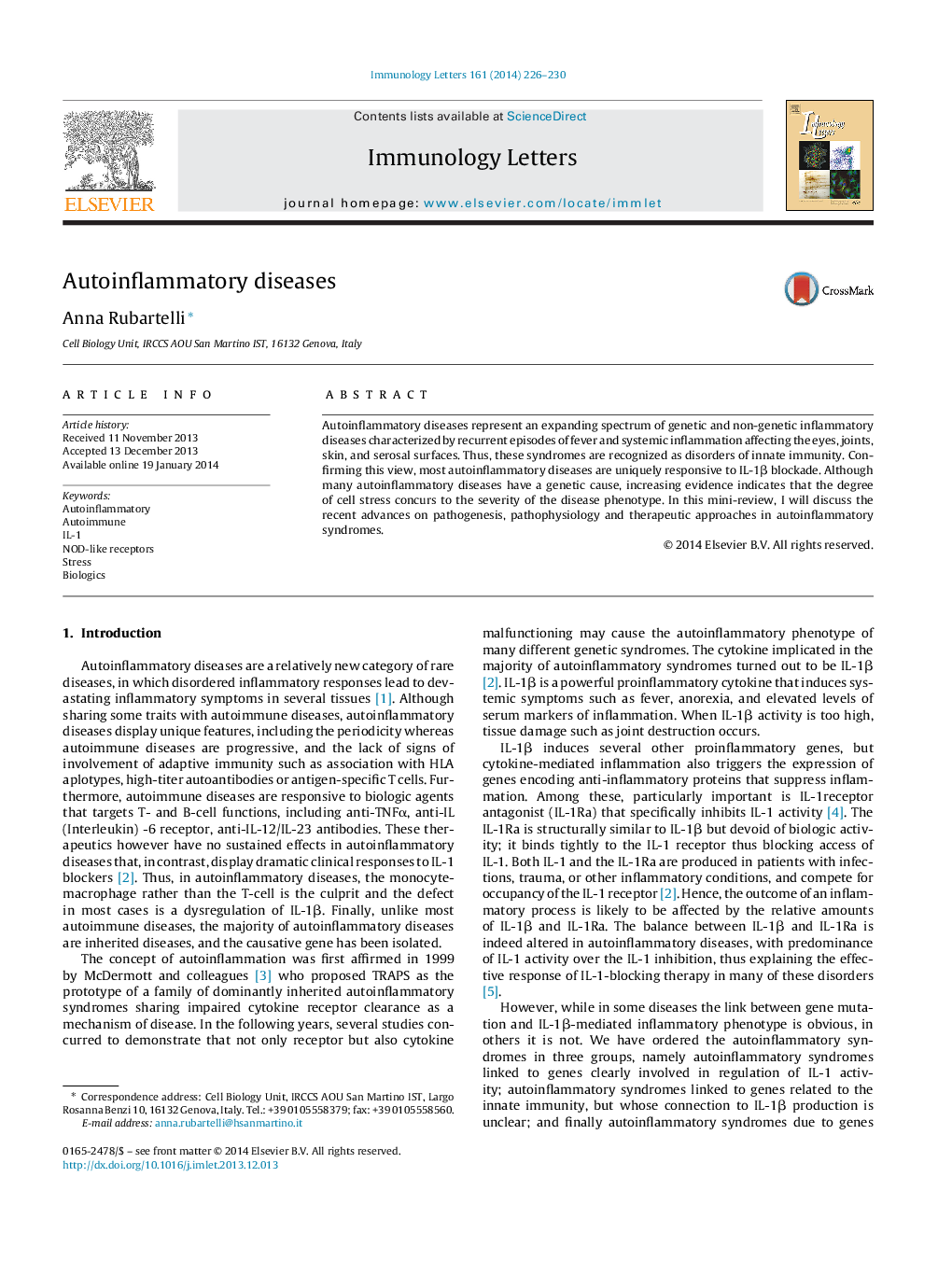| Article ID | Journal | Published Year | Pages | File Type |
|---|---|---|---|---|
| 3355401 | Immunology Letters | 2014 | 5 Pages |
•Autoinflammatory diseases are recognized as disorders of innate immunity.•IL-1β is dysregulated in most of them, even those linked to genes apparently unrelated to IL-1β.•Anti-IL-1 therapy is the treatment of choice for most autoinflammatory diseases.•Stress contributes to the severity of the disease phenotype.
Autoinflammatory diseases represent an expanding spectrum of genetic and non-genetic inflammatory diseases characterized by recurrent episodes of fever and systemic inflammation affecting the eyes, joints, skin, and serosal surfaces. Thus, these syndromes are recognized as disorders of innate immunity. Confirming this view, most autoinflammatory diseases are uniquely responsive to IL-1β blockade. Although many autoinflammatory diseases have a genetic cause, increasing evidence indicates that the degree of cell stress concurs to the severity of the disease phenotype. In this mini-review, I will discuss the recent advances on pathogenesis, pathophysiology and therapeutic approaches in autoinflammatory syndromes.
